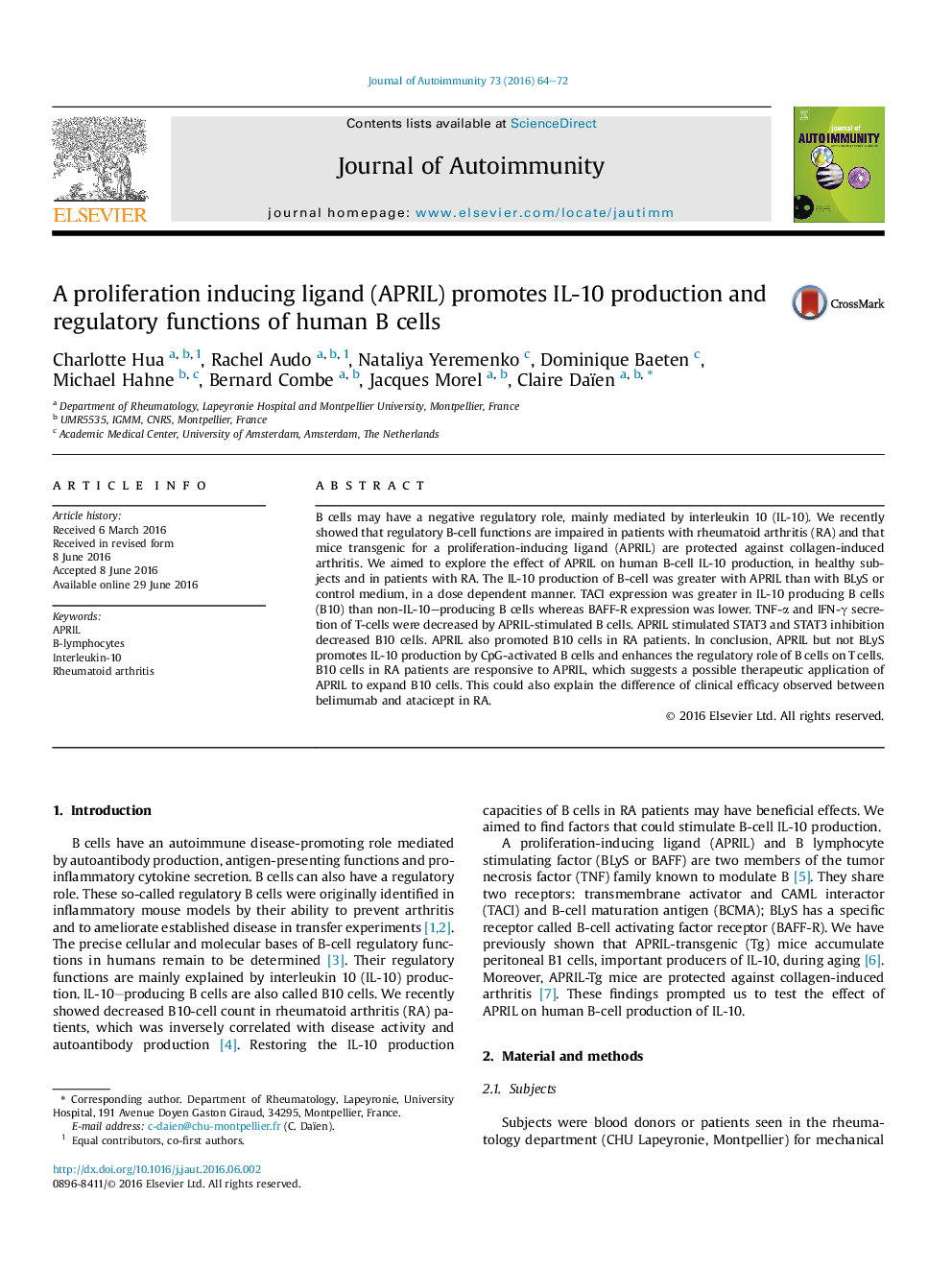| Article ID | Journal | Published Year | Pages | File Type |
|---|---|---|---|---|
| 3367639 | Journal of Autoimmunity | 2016 | 9 Pages |
•APRIL promotes IL-10 production of B-cells in healthy subjects and RA patients.•BLyS does not promote IL-10 production of B-cells in healthy subjects and RA patients.•IL-10 producing B cells express more TACI and less BAFF-R than IL-10–non-producing B cells.•APRIL may be useful to restore IL-10 production of B-cells in RA patients.•APRIL may be useful to restore B-cell regulatory functions in RA patients.
B cells may have a negative regulatory role, mainly mediated by interleukin 10 (IL-10). We recently showed that regulatory B-cell functions are impaired in patients with rheumatoid arthritis (RA) and that mice transgenic for a proliferation-inducing ligand (APRIL) are protected against collagen-induced arthritis. We aimed to explore the effect of APRIL on human B-cell IL-10 production, in healthy subjects and in patients with RA. The IL-10 production of B-cell was greater with APRIL than with BLyS or control medium, in a dose dependent manner. TACI expression was greater in IL-10 producing B cells (B10) than non-IL-10–producing B cells whereas BAFF-R expression was lower. TNF-α and IFN-γ secretion of T-cells were decreased by APRIL-stimulated B cells. APRIL stimulated STAT3 and STAT3 inhibition decreased B10 cells. APRIL also promoted B10 cells in RA patients. In conclusion, APRIL but not BLyS promotes IL-10 production by CpG-activated B cells and enhances the regulatory role of B cells on T cells. B10 cells in RA patients are responsive to APRIL, which suggests a possible therapeutic application of APRIL to expand B10 cells. This could also explain the difference of clinical efficacy observed between belimumab and atacicept in RA.
